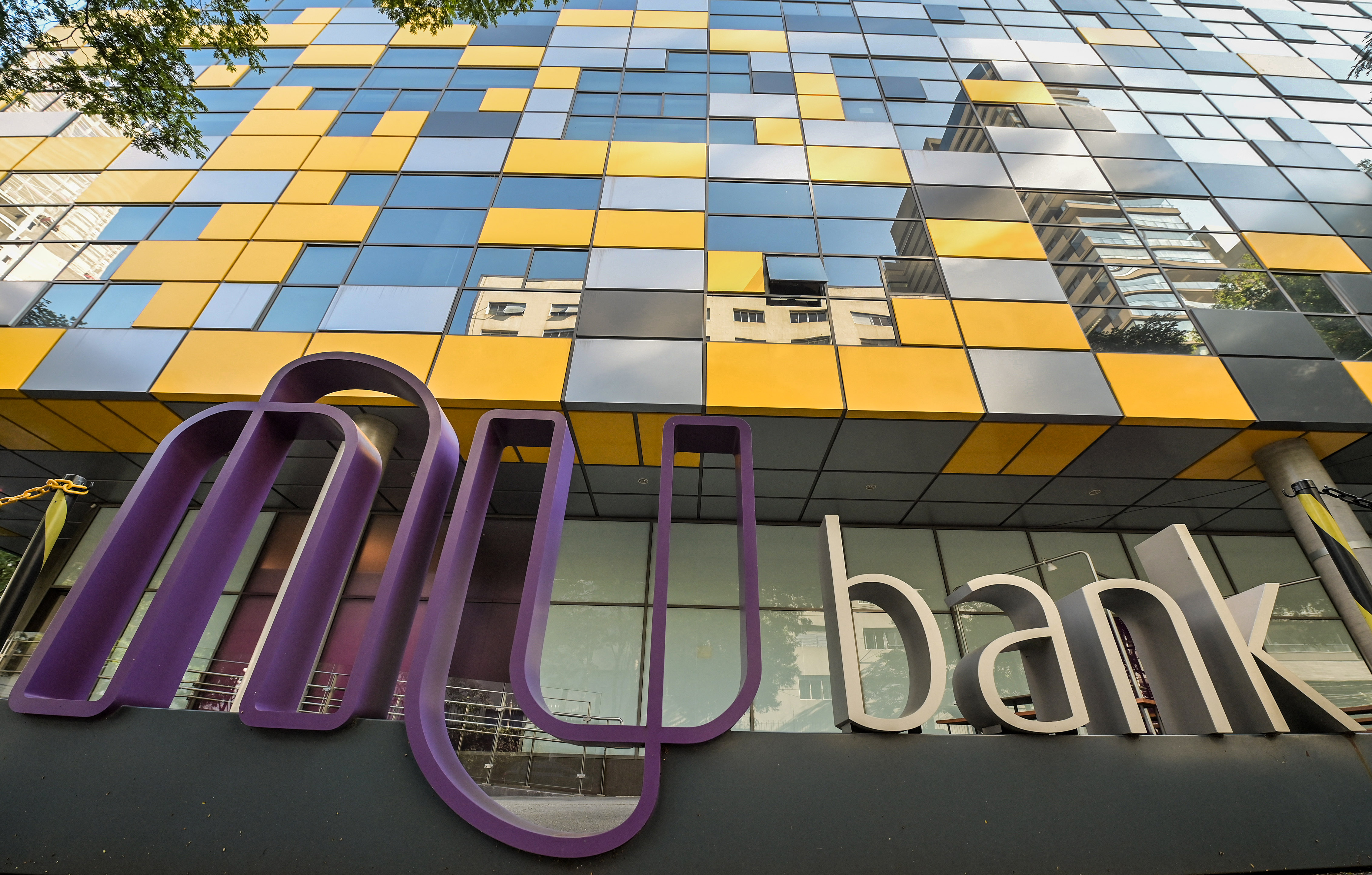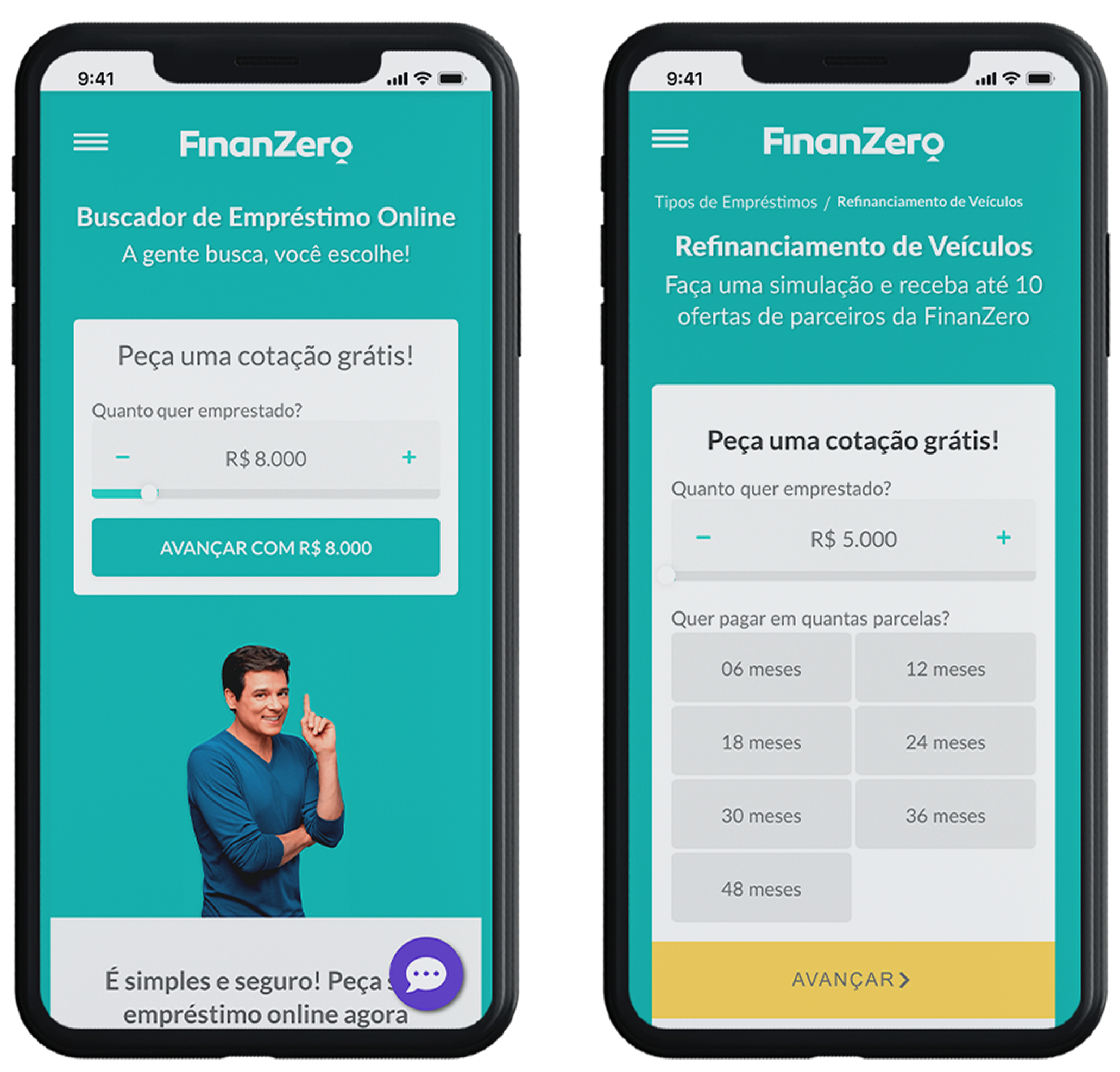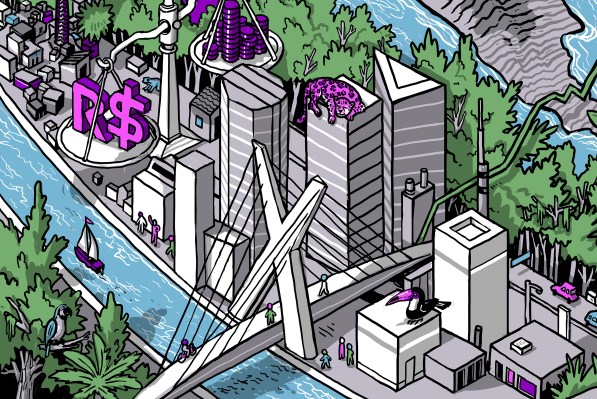Nubank’s first office, on California Street in the Brooklin neighborhood of São Paulo, makes for a great beginning to the company’s story. It wasn’t a Silicon Valley garage, but this tiny, one-bathroom rented house, where 30 people worked insane hours to push out the company’s debut credit card, lends just as well to an image of entrepreneurial spirit and drive.
As Nubank continues to make international waves, more and more VC investors are taking a look at the Brazilian ecosystem and could potentially fund other upstarts in the years to come.
But as Nubank’s story continued, the team eventually had to move out of that early office, and the next several offices, too. Eventually Nubank had to relocate to an eight-story building in São Paulo, which houses a large part of the company’s now 3,000-person team.
The startup reached decacorn status in far less than a decade, and it is growing faster than ever. When I interviewed CEO David Velez back in January to discuss Nubank’s $400 million Series G, he said, “We’ve gone from 12 million customers in 2019 to 34 million solely based on word of mouth.” By September last year, the company was onboarding 41,000 new customers per day.
In the five months since our interview, Nubank has managed to rope in a whopping 6 million customers to reach 40 million. It’s now valued at $30 billion.

Nubank’s present day headquarters in São Paulo, Brazil. Image Credits: NELSON ALMEIDA/AFP / Getty Images
Getting there hasn’t been easy. The company’s three co-founders, Velez, Edward Wible and Cristina Junqueira, had to make key strategic decisions about how to scale themselves to retain the company’s lead in the neobanking market. That lead is getting tougher to sustain every day. Nubank’s proliferating offerings and broader geographical remit has painted a massive target on its back, and a wide number of competitors have cropped up to run on the paths it pioneered.
Like most Disney films, a fairy-tale ending seems in order, but it’ll take a few more rotations of the film wheel to get to the ending.
Early mistakes and ingredients for success
For the co-founding trio, it became increasingly clear that Nubank’s growing scale demanded critical strategic decisions on how to bring order to the company.
By 2018, the company had thousands of employees, millions of customers, and they still didn’t have a head of HR. Growth until then had been somewhat unstructured. According to Junqueira, waiting so long to hire a head of HR was one of their early mistakes, because it stunted their ability to grow. “[Good] people continue to be our biggest bottleneck,” she says.

Nubank co-founder Cristina Junqueira. Image Credits: Patricia Monteiro/Bloomberg / Getty Images
They soon found Renee Mauldin to fill that gap. Similar to when Wible was discovered by Velez while sailing in Indonesia, Mauldin was on a sabbatical in Vietnam when Nubank reached out to try and lure her back to the world of fast-growing startups.
Mauldin had been chief human resources officer at Twitter, and global head of people and places at Uber, so she brought plenty of experience in growing startups, which was exactly what Nubank needed at the time.
Also, joining a rapidly growing company in an emerging market was still on Mauldin’s list of things she hadn’t tried yet. “Doing fintech in a developing country allows for greater impact,” Mauldin said, referring to what immediately attracted her to the job.
Michael Chu, a senior lecturer at Harvard Business School who wrote a case study on Nubank, said that “David started and captured the idea that you have to bring the best people, and it doesn’t matter where they are from. Hence why the official [company] language is English.”
That’s in line with how Nubank investor Doug Leone of Sequoia Capital broke down the company’s ingredients for success:
- The quality of the first five employees.
- An aggressive mindset of going faster and faster.
- Never lowering credit standards because of growth.
- Maniacal attention to customers.
On the company’s growth, “It was nothing short of stunning,” Leone said.
Sometimes, it’s better to move on
Junqueira’s role at Nubank has changed and evolved as Nubank itself grew and transformed from a credit card provider into a bank and finally into its current, multivertical avatar. She claims the elusive and simple title of merely “co-founder” of the company, despite her myriad duties at the company.
But sometimes, a company outgrows a person’s knowledge and even their ability to learn.
Wible and Velez had discussed early on in their partnership that if either of their roles outgrew them, they would do what’s best for the company. And that came to pass for Wible this year.
This past spring, Nubank announced that Wible was stepping down as CTO and would be replaced by Matt Swann, who had previously served as CTO of Bookings.com and StubHub, and as CIO of the Global Consumer Bank at Citi.
The move was spurred by Nubank’s expansion into Colombia and Mexico, as the team quickly realized that expansion into the new territories were novel aspects of the business that none of them had experience with.
Expanding internationally is already a steep mountain to climb in many respects, but when you add the responsibility of handling personal finance for an entirely different set of demographics and sorting out foreign banking regulations, the difficulty starts to climb exponentially. On the tech front, Wible would need to create a new roadmap to “tropicalize” the company’s platform for the new territories as well as translate its products into Spanish.
So, soon after Nubank raised a $400 million Series G round in January 2021, Wible and Velez decided they needed someone with the know-how to take the company to the next level. This would also need to be someone for whom growing a large business wasn’t new. Velez also said Wible missed coding — he had become a full-time manager at this point, and managing wasn’t something he particularly enjoyed.
The two agreed Wible would continue to be a co-founder, but go back to coding, and Swann would take over the CTO responsibilities.
With Wible out of a formal C-level role and Junqueira never having taken one, will Velez also eventually shed the CEO label? Nicolas Szekasy of Kaszek Ventures doubts it. “You’re either big picture or you’re good at operations, but David has proven to be very strong in both areas,” he says. “He was the right person from Day One, and he’s the right person today, and he will be the right person 10 years from now.”
Finally, a Real fintech landscape
Velez’s mission to revolutionize banking in Brazil has helped him bring Nubank to where it is now, but the company is no longer alone in taking advantage of the huge market opportunity.
While Nubank is focused on being the leader of the pack, other Brazilian fintechs are nipping on the company’s heels to see what services remain to be tackled.
Unlike Nubank, which focuses on the unbanked and underbanked population, alt.bank offers a credit card targeted exclusively at the unbanked in Brazil. The company, which last month raised a $5.5 million Series A, has fine-tuned its product to service the 11 million people in Brazil who remain illiterate — for instance, its app is color-coded to enable illiterate Brazilians to manage their credit cards.

Alt.bank has arrived in Brazil to compete for the unbanked. Image Credits: alt.bank
On the other end of the spectrum lies PicPay, which filed for a $100 million IPO on the Nasdaq in April. The company operates largely as a financial services platform offering a credit card, a digital wallet similar to Apple Pay, a Venmo-style P2P payments element, e-commerce and social networking features. It doesn’t offer bank accounts, though.
In a country where getting a loan is still considered a feat for many, other fintechs in the area address this one simple obstacle and leave all the other problems to the wayside. One such company is FinanZero, which allows people to apply for a personal loan, a car equity loan, or a home equity loan for free and receive an answer in minutes.
Key to FinanZero’s success is that it doesn’t offer the loans itself, but instead partners with about 51 banks and fintechs who underwrite the loans. It has raised a total of $22.85 million since its launch in 2016.

A view of the FinanZero app. Image Credits: FinanZero
Of course, that’s just the market today. As Nubank continues to make international waves, more and more VC investors are taking a look at the Brazilian ecosystem and could potentially fund other upstarts in the years to come.
Capital-izing on success
Of course, fundraising remains a huge barrier to growth in the region. Carlos Garcia, the founder and CEO of Kavak, a Mexican unicorn that sells refurbished used cars, once told me, “When you’re building a business here [in Latin America], you need to build several businesses, because so many things are broken.” Garcia’s own business functions as four companies in one, including a financing vehicle that helps customers pay for its refurbished cars.
This is certainly true for Nubank, which launched with one product but never had the intention of stopping there. Nubank wanted to be the Disney of Brazilian fintechs, and it has focused on securing the capital it needed to continue sprinkling its magic on every vertical or country it touches.
Just last week, the company announced a $750 million extension to its $400 million Series G, led by Berkshire Hathaway and a group of investors, that values the company at $30 billion, up from $25 billion in January. The additional capital brings its Series G to $1.15 billion, making it one of the biggest fundraising rounds by a Latin American tech company.

Berkshire Hathaway CEO and chairman Warren Buffett. Image Credits: Dimitrios Kambouris/Getty Images
All that capital has helped Nubank expand across verticals and recruit talent from around the world. In addition to offering its products in Brazil, Mexico and Colombia, the company now has a corporate office in Argentina, a team of Clojure engineers in North Carolina and a group of developers in Germany.
The North Carolina location is the result of the acquisition of Cognitect, a Clojure consultancy, in July 2020. The acquisition not only served to grow Nubank’s tech team overnight, it also meant that the company could have more control over the future of the Clojure market, which is the language it chose to use for its platform. “Nubank is now the largest Clojure company in the world by the number of engineers,” Wible told TechCrunch.
A new future
One might expect that Nubank would soon take over the world, but Velez has a different approach in mind: More verticals, he says.
His aim is for Nubank to become the gold standard in customer service, and then apply that level of expectation to other sources of revenue. A simple example — and trial of this concept — was the company’s expansion into life insurance. “We launched life insurance last year, and we beat our 2021 goal in two months. More than 50% of customers who got life insurance, it was the first life insurance they ever had,” Velez said.
He wants to emulate a growth strategy similar to companies like Amazon. His reasoning is, because of Amazon, we have come to expect shipping to be fast and easy, and we now expect our purchases to be delivered in a couple of days, whether they’re coming from Amazon or not. Velez wants Nubank to set a similar expectation for customer service.
“When customers go to buy an airline ticket and they have a bad experience, we want them to say, ‘Why can’t you be more like Nubank?’” he said.
But will Nubank always manage to stay in the lead?

The Brazilian Real and U.S. dollar. Image Credits: YASUYOSHI CHIBA/AFP / Getty Images
“Everyone knows the digital age is here, but Nubank is the disruption of the model itself; it’s creating a new model,” says HBS’ Chu, referring to Nubank’s role in the Brazilian banking system. He believes that part of Nubank’s pizazz is the energy and creativity embodied by its team of young employees. But what happens when those employees grow up?
“The magic to that culture is to sustain the playfulness of the mind. The challenge is: How can you build a successful model and then break out of it so you can grow with your people and continue doing that?” Chu says.
He believes that is a question that mission-driven organizations should answer and continue answering as the world changes. “That’s why Barnes and Nobles never did Amazon, and why Itaú never became Nubank. Nubank is becoming the new Itaú. When Nubank is Itaú, will it be able to spawn the next Nubank within itself? Or will it be someone like David, who comes in and says, ‘Boy, someone ought to do this a lot better,’” he says.
But it’s virtually impossible to keep things just as they were when the business was in its infancy. People change, and as they grow older, it becomes harder to bring the same level of energy, freshness and unique perspectives to the business.
Chu feels that when a company succeeds and becomes one of the big winners, its biggest competitor is within itself. “You have to make sure you don’t calcify. When they were in this little house, they weren’t bound by anything except their ideas.”
Those ideas are now worth tens of billions of dollars, and an IPO has been rumored for months. Nubank has built itself a new future, one that extends not just to its co-founders or employees, but to Brazilians and Latin Americans and the world over.
Nubank EC-1 Table of Contents
- Introduction
- Part 1: Origin story
- Part 2: Co-founder dynamics
- Part 3: Launching and scaling
- Part 4: Market expansion and future
Also check out other EC-1s on Extra Crunch.
